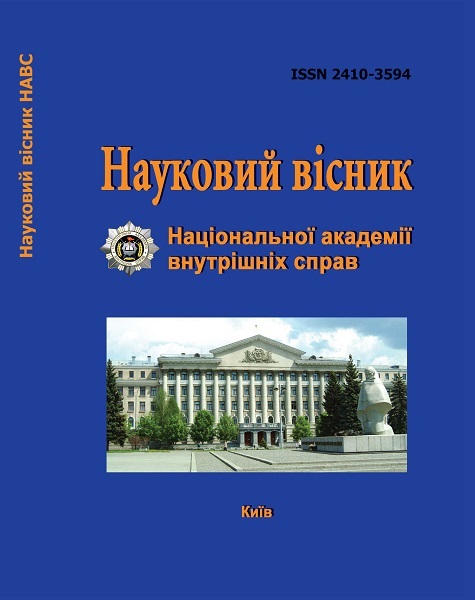Synergetics of the Subjective Element of a Crime
Keywords:
consciousness, awareness, foresight, guilt, mental condition, thought, intellect, will
Abstract
Іn the structure of the subjective part of the crime, the legal features of the subjective part of the crime are determined. That is, the subjective part of the crime is such an actual design, without which it is impossible to establish a legal structure – the subjective part of the crime. The subjective aspect of the crime is rather difficult to actually establish. The latter becomes possible only through the establishment of psychological features of the structure of the subjective part of the crime, which also determines the internal (mental) attitude of the person to the criminal offense committed, which determines the content of the subjective part of the crime in each particular case. The combination of features characterizing the psychological activity of the perpetrator is one of the elements of the crime, namely its subjective aspect.It is through such interrelated and interrelated legal features, such as fault, motive, purpose of crime and emotional state of the subject, one can reveal the content of the subjective part of the crime. At the same time, these signs are determined by separate psychological phenomena, which form the structure of the subjective side of the crime. The subjective aspect of the crime is directly dependent on the psychological and psychological characteristics of the person who committed the crime. In particular, to control their own behavior, to adhere to moral and ethical norms and rules of conduct, only an individual with a certain level of intellectual-volitional ability can adequately perceive the outside world.
Downloads
Download data is not yet available.
Abstract views: 128 PDF Downloads: 224
How to Cite
[1]
Veresha, R. 1. Synergetics of the Subjective Element of a Crime. Scientific Herald of the National Academy of Internal Affairs. 108, 3 (1), 223-237.
Issue
Section
Combating crimes: theory and practice
- Authors reserve the right to authorship of their own work and transfer to the magazine the right of the first publication of this work under the terms of the Creative Commons Attribution License, which allows other persons to freely distribute published work with mandatory reference to authors of the original work and the first publication of an article in this magazine.
- Authors have the right to enter into separate additional agreements on non-exclusive dissemination of the work in the form in which it was published in the journal (for example, to post an article in the institution's repository or to publish as part of a monograph), provided that the link to the first publication of the work in this journal is maintained.
- The journal's policy allows and encourages the posting of articles by authors on the Internet (for example, in electronic storehouses of institutions or on personal websites), both before the submission of this manuscript to the editorial office and during its editorial processing, as this contributes to the creation of a productive scientific discussion and positively affects the efficiency and dynamics of citing the published work.




